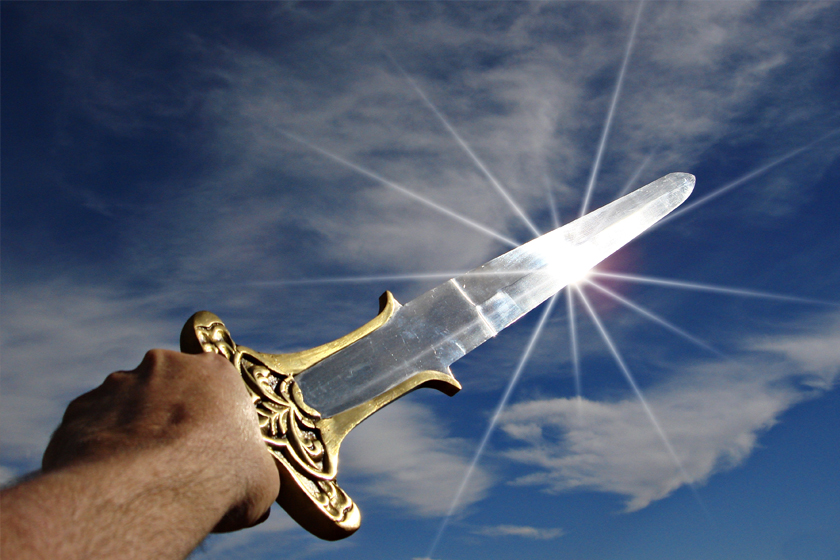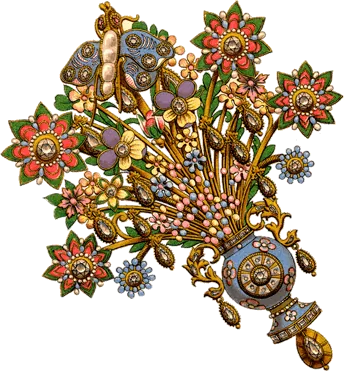Balaam derived his strength from the power of speech. With it, he came against Israel and exchanged his craft with their craft, for Israel triumphs only with the tongue.
When Balak, the king of Moab, sought to harm Israel, he did not attack them with military power or weapons of war, rather, he employed Balaam to curse them with his speech. Ultimately, God did not allow Balaam to curse the Jewish people. Nevertheless, Balaam instructed Balak on how to entice the Jewish people to curse themselves. In the end, 24,000 Jews died in a plague and the Moabites didn’t even have to raise a sword.
The Power of the Tongue
Parshat Mattot is all about the power of speech. The theme is implicit from beginning to end. The parsha begins with an imperative regarding vows and oaths, and ends with promises made by the tribes of Reuben, Gad, and the half tribe of Manasseh. Sandwiched in between is the account of God’s final charge to Moses before he is gathered to his people: “The Lord spoke to Moses saying, ‘Take revenge for the children of Israel against the Midianites; afterwards you will be gathered to your people (Num. 31:2).’”
Moses is not generally esteemed for his military prowess. Although he was a capable warrior, his accomplishments as a leader and redeemer are notable for his words, the words of Torah. Moses' authority came from God, and his power was derived through divine communion. The same can be said of the Jewish people. It is not Jewish nature to start wars, although we are capable of defending ourselves when necessary. The true strength of Israel lies in the tongue, with words of Torah and the power of prayer. For this reason, the prophet Isaiah writes concerning Israel: "Fear not, O worm of Jacob, O men of Israel, do not fear (Isa. 41:14)."
The comparison of Israel to a worm may seem degrading at first, however, the message is clear. Although a worm appears to be small and vulnerable to prey, the power of its mouth is unrivaled. A worm can burrow through earth and rock all by the strength of its jaw. In the same manner, the craft of Israel is found in the power of intellect and speech; through prayer, blessings, and instruction. Throughout Scripture, the concept of using speech as a means to elevate through blessing and to grow closer to God is something that defines Israel. The prophet Isaiah even likens Israel’s craft to a sword:
“And He made my mouth like a sharp sword, He concealed me in the shadow of His hand; and He made me into a polished arrow, He hid me in His quiver. And He said to me, ‘You are My servant, Israel, about whom I will boast (Isa. 49:2).’”
The Midianite War
It is curious that the Torah would interrupt the thematic progression of the power of speech in order to narrate an account about war. However, careful consideration of the details provided suggest that the battle was more closely related to words than one might initially suspect:
And they killed the Midianite kings upon their slain, Evi, Rekem, Zur, Hur, and Reba, the five kings of Midian and Balaam the son of Beor they slew with a sword (Num. 31:8).
Two important details emerge in accompaniment with the text: First, Balaam is present; and second, he is killed with a sword. Furthermore, the Torah seems to insinuate that Moses’ role as leader, prophet, and redeemer could only be fulfilled after he conquered the Midianite kings. That is, after he avenged Israel by destroying the source of her enmity. For that reason, it is puzzling that Balaam's death is mentioned here. Weren't the chiefs of Midian the ones responsible for commissioning their daughters to lure the Jewish men?
In our last encounter with Balaam, the Torah was mute on his activity after failing to curse the Jewish people. It would be natural to assume that he simply returned home without receiving a reward from the Moabite king. However, the New Testament and Jewish tradition recall Balaam's subsequent action: “Balaam… taught Balak to put a stumbling block before the children of Israel, to eat things sacrificed to idols, and to commit sexual immorality (Rev. 2:14).”
In view of this common understanding, the foremost Jewish commentator, Rashi, explains the intent behind Balaam’s visit to Midian on that fateful day: “Balaam went there, to Midian, to collect payment for the 24,000 whom he had felled from Israel through his advice.”
From here, the sequence of events are self evident: Balaam learned that his plan to destroy the Jewish people had worked. It was time for him to collect his payment. Yet, while he was on his way to Midian, Moses had already been instructed to take vengeance on that people; and by the time Balaam arrived, the Jewish people were marching in his direction. The sorcerer who could talk to God found himself at the wrong place at the wrong time. It would be Israel, not Midian, who would deliver his reward.
The Power of the Sword
The Torah seems to provide a superfluous detail about Balaam's death – he was killed with a sword. On the surface, it would seem more efficient to simply say that Balaam died. However, it is important to bear in mind that when the Torah reveals information, it does so on a need-to-know basis, which means that any information provided is critical. With this in mind, Rashi notes that when Balaam came against Israel, he attempted to exchange the craft of the nations with the craft of Israel:
WITH THE SWORD: Balaam came against Israel and exchanged his craft with Israel’s craft, for Israelites triumph only with their mouth, through prayer and supplication, and Bilaam came and seized their craft by cursing them with his mouth...
Rashi highlights some incredible details about Balaam's character. Similar to Moses, he was not a mighty man who would defeat his enemies through intimidation and military prowess. But rather, he was a man who derived his strength through the power of speech. As previously mentioned, and as Rashi elucidates, Israel is notably distinguished for possessing this quality through the power of prayer. However, Balaam was not Jewish. He was to the nations what Moses was to Israel, one who could commune with God albeit, without sincere relationship. As a prophet of the nations, Balaam represented an entity who's craft is the power of the sword.
In Moses’ final act, he was instructed to take vengeance on behalf of Israel. As the quintessential Jewish leader, Moses derived his strength through the power of the tongue. In retribution, Moses ensured that Balaam was killed with the sword, the weapon of the nations:
“Balaam came and seized their craft by cursing them with his mouth, They, too, came against him and exchanged their craft for the craft of the other nations, who come with the sword, as it says, “By your sword you shall live” (Rashi).
In the end, Balaam received his reward from Israel, not from Midian, measure for measure. In similar fashion, the New Testament author describes the Messiah's vengeance in the last days:
“And to the angel of the congregation in Pergamos write,‘These things says He who has the sharp two-edged sword: ‘...I have a few things against you, because you have there those who hold the doctrine of Balaam, who taught Balak to put a stumbling block before the children of Israel, to eat things sacrificed to idols, and to commit sexual immorality. Thus you also have those who hold the doctrine of the Nicolaitans, which thing I hate. Repent, or else I will come to you quickly and will fight against them with the sword of My mouth.
Shockingly, the Apostle John informs us that in the last days, Messiah is going to take vengeance on the nations that set a trap for Israel, and he is going to conquer them with the sword of his mouth.


